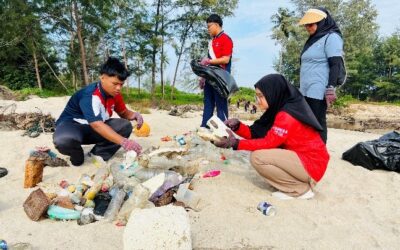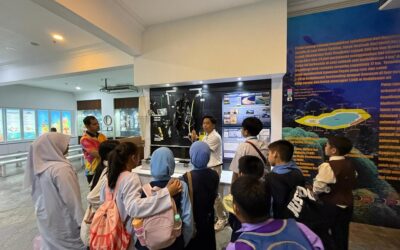What Can We Do to Help Malaysia’s Coral Reefs
In my last post I covered the results of the 2024 annual reef check survey programme, which had just been released.
The headline: coral reef health declined slightly – again – compared to the previous year, and I outlined several challenges facing coral reefs.
I finished with a question: so, what can we do? We urgently need to look at three opportunities to address this decline.
Build Coral Resilience
Back to our old friend: resilience.
This describes the ability of an ecosystem to either “shrug off” an external threat or impact (such as bleaching) or to recover from it.
We do this by addressing the local impacts that are affecting them.
Urgent Actions to Address Local Impacts to Coral Reefs
Reducing physical damage to reefs:
-
training courses for boat operators to reduce impacts from groundings and anchors
-
encourages dive operators to Best Practice programmes such as the Green Fins programme
-
training courses for snorkel guides in eco-friendly snorkelling guiding Best Practices
-
consider limiting number of tourists allowed access to particularly sensitive areas
-
awareness raising programmes for fishing communities to reduce fishing pressure on reefs
-
provides fishing net collection bins at all fish landing ports and regulate the sale of fishing nets.
Installing mooring buoys is one of our efforts to reduce impacts to the reefs
Reducing sewage pollution in the ocean:
-
encourages resorts to upgrade sewage treatment
-
increase water quality testing
-
implements septic tank maintenance programmes on all islands
Reducing impacts of coastal development:
-
rigorously enforces planning controls in sensitive islands
-
ensure EIAs are completed and EMPs are prepared and implemented
Protecting fish populations:
-
manages fishing effort to ensure herbivore populations are maintained
-
reduce IUU (illegal, un-regulated and un-reported) and destructive fishing practices through enforcement and awareness campaigns.
It is important to note that none of these interventions requires novel technologies, and most are zero or low cost, with the emphasis on improved enforcement. Many can be achieved simply by strengthening management or enforcing existing regulations to reduce or eliminate impacts.
Whole of Government Participation in Marine Management
The second challenge is to recognize that success in this endeavour will require a “whole of government” approach. No individual department has the mandate to respond to and manage the variety of impacts facing coral reefs; it will require government agencies with different responsibilities to collaborate and integrate coral reef management between them.
Specifically, this will require greater participation of State governments in managing marine resources, particularly in Peninsular Malaysia (there is already greater integration of State governments into marine resource management in East Malaysia).
Whole of Society Participation in Marine Management
Finally, we will require a “whole of society” approach. Marine resource management largely uses a “top-down” approach, with decisions being made by government agencies.
The role of local stakeholders (including communities, businesses, state and municipal government) is currently limited – despite local and international agreements that encourage a greater role in management and conservation for such stakeholders.
The Kunming-Montreal Global Biodiversity Framework (KMGBF), the Sustainable Development Goals (SDGs), Malaysia’s National Policy on Biological Diversity (NPBD), and the 12th Malaysia Plan (RMK 12) all envisage a greater role for indigenous peoples and local communities. However, there is no formal mechanism that currently exists to enable this and empower local stakeholders. This issue is further explored in the following section.
Two of our CMCGs – RMCG and TMCG
Reef Check Malaysia’s Focus in 2025
So, what is our focus going to be this year?
Two key areas:
-
Building community participation: expanding our existing Community Marine Conservation Groups (CMCGs) – report on 2024 activities available soon
-
Greater advocacy, education and awareness raising, particularly among key decision makers, to raise the profile of marine ecosystems and ensure decision makers are getting the information they need to make the decisions that reefs need.
I’ll be talking about these issues in the coming months so, don’t miss out!
______________________________________________________________________________________
If you’d like to support us, you can follow our social media pages for any updates on our work and volunteering opportunities, or you could also donate towards our cause.





